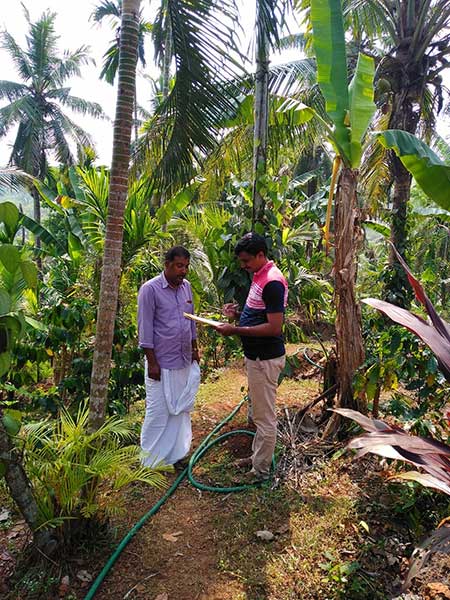Project CRREA (Climate Responsive & REsource Conservation Action)
The mountain chain of Western Ghats of India, a biodiversity hotspot, covers an area of over 150,000 square kilometres spanning a stretch of 1,600 kilometres that runs almost parallel to the western coast covering six states from Gujarat, Maharashtra, Goa, Karnataka, Tamil Nadu to Kerala. The United Nations Educational, Scientific and Cultural Organization (UNESCO) has added India’s Western Ghats — a mountain range that has forests older than those in the Himalayas — to the list of world heritage sites. The Western Ghats are today internationally recognized as a region of immense global importance for the conservation of biological diversity, besides containing areas of high geological, cultural and aesthetic values.

The Western Ghats are also critical to the water systems in the region. The mountains of the Western Ghats and their characteristic montane forest ecosystems influence the Indian monsoon weather patterns that mediate the warm tropical climate of the region. The Ghats act as a key barrier, intercepting the rain-laden monsoon winds that sweep in from the south-west during late summer. The Western Ghats also form one of the three important watersheds of India, from which many South Indian rivers such as the Godavari, Bhima, Koyna and Krishna originate. The Ghats sustain perennial rivers while ensuring peninsular India’s water and food security and hence are aptly called the water tower of peninsular India.
The conservation of the forest cover and other natural resources of the Western Ghats is crucial for not just biodiversity conservation, but also the food and water security of peninsular India. Unfortunately, the region is faced with enormous population pressure and degradation of the environmental resources.
Project CRREA is a project of CSM being undertaken in collaboration and coordination with local communities, local panchayats, forest departments, schools local civil society organisations and other local stakeholders active across the Western Ghats. This project builds on CSM’s work across the Western Ghats ranging from research on environmental services provided by local communities to supporting the development of sustainable agri-value chains; from reporting on major climatic activities in India to undertaking projects for restoration of natural resources with local communities in the Western Ghats.
To deal with the steadily devolving environmental crisis in the Western Ghats project CRREA is a more direct collaborative and grassroots led programme which focuses on direct action. The main objective of the project is to undertake locally relevant conservation and environmental action which supports and restores the biodiversity, and other natural resources across the Western Ghats; and in doing so enables a holistic response to climate change and the conservation of the local ecosystems. The initial areas of action to be undertaken through local community participation have been identified as-
- Increasing and improving the green cover in the Western Ghats
- Supporting local watershed restoration, conservation and development activities
- Supporting natural soil health restoration and reducing the of use of toxic agro-chemicals
- Supporting local communities for climate change resilience, adaptation and mitigation
- Empowering women in local communities as custodians of natural resources and enhancing their economic capacities and access to resources and knowledge
In this way, project CRREA is also working towards achieving the United Nations mandated Sustainable Development Goals (Specifically SDG5-Gender Equality, SDG12- Sustainable Consumption & Production, SDG13- Climate Action and SDG 15- Life on Land). The project is currently at its formation stage and specific interventions are evolving based on the feedback from the local communities, local authorities and local partners as well as data about the state of natural resources in different parts of the Western Ghats.

